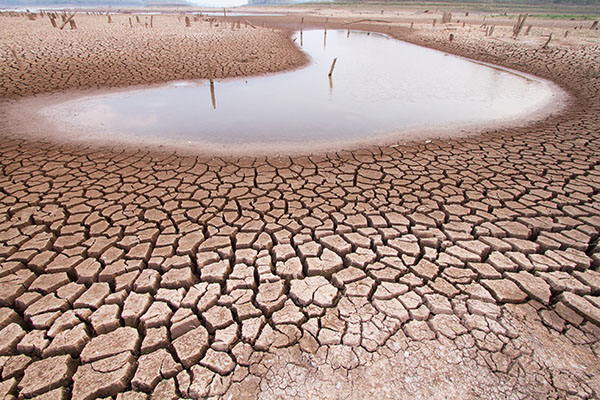
While making your own activated charcoal takes time, it can be done at a fraction of the cost in stores. A pound of activated charcoal would set you back around $12 to $15, but making your own will cost around a dollar for as much volume. For $20, you can have enough to have on hand for barter, trade or simply to help others in a tough spot during a survival situation. (Related: 7 Reasons why preppers love activated charcoal.)
Making activated charcoal involves mixing powdered hardwood with chemicals such as calcium chloride, then heating the mix to a high temperature. You can also use fibrous plant materials such as coconut shells if hardwood is not available, and lemon juice can substitute for calcium chloride.
The first thing you need is an all-natural hardwood lump of charcoal. Using a mortar and pestle, grind the charcoal to a powder until it is ground into a fine powder.
After grinding the charcoal to a fine powder, filter it through a sieve to make sure that there aren't any lumps.
The ground charcoal alone will not be enough – it has to be activated. Use fresh lemon juice as the acid in the product: one ounce of lemon juice to three ounces of water. Make sure to use only distilled or purified water to avoid contaminating the product.
Measure eight ounces of charcoal powder in a cup and put it in a large bowl. Add the lemon water mixture. Make sure that it covers the top of the solution.
Cover up the mix for 24 hours, then give the charcoal a rinse. Get the liquid off the charcoal using a strainer or a coffee filter before putting it onto a cookie sheet to dry completely.
By then, you should have a paste. Scrape the charcoal onto the baking sheet and make sure to spread it out thinly to make drying faster. Put it in the oven at 250 F to warm and dry for an hour or two, or until the moisture is totally gone.
Once it dries, you can break it apart or grind it back into a powder, then store it in an air-proof jar to make sure that it doesn't start absorbing the smells and odors inside your home. It's that simple to make, and it works.
Uses of activated charcoal
Activated charcoal can be very useful in emergency situations. First, it is a good emergency water filter. Some filters have sections that require activated charcoal to reduce and eliminate chemicals that you don't want in your water. You can do this by simply putting your water through a coffee filter with activated charcoal in it. (Related: The many uses of activated charcoal as a dietary supplement.)
It also acts as adsorbent that can adsorb other gases on its surface. In gas masks, for example, activated charcoal adsorbs poisonous gases.
Activated charcoal is also a remedy for poisons, including alcohol. Charcoal absorbs toxins, so eating some activated charcoal can reduce the effects of poison. Others also use this if they have ingested too much alcohol as it can help reduce blood alcohol levels.
When treating poisoning, it is important to give activated charcoal to the individual as soon as possible. At best, within 30 minutes after the poison is consumed. For a one-dose treatment, an adult should take around 50 to 100 grams of activated charcoal powder mixed with water. Children aged one to 12 years old should be given only half the dose. It is not safe for babies less than a year old.
Watch the video below to learn how to make activated charcoal for your survival needs.
This video is from the Truth or Consequences channel on Brighteon.com.
More related stories:
Prepper must-haves: 7 Medicinal uses of activated charcoal.
Preppers chemistry: How to make your own activated charcoal water filter and hand warmers.
Going nuts about coconuts: Activated charcoal from coconut shells is one of the best ways to detox.
Removing heavy metals from water: Activated charcoal from palm kernel cake is a low cost biosorbent.
Beat bloat and flatten your stomach with these expert-recommended natural solutions.
Follow Preparedness.news for more related stories.
Sources include:
Please contact us for more information.























